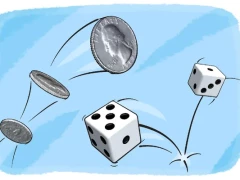noun [专属名词]会计,会计师 - She has an appointment with her accountant.
noun [专属名词]宇宙,天地万物(the universe);领域,体系;(已知宇宙以外的)宇宙 - If you talk about someone's universe, you are referring to the whole of their experience or an important part of it. (
verb [vt. 及物动词]建议,劝告 ;推荐,介绍;使显得吸引人,使受欢迎;<古> 把…交托给,把…托付给 - If you recommend that something is done, you suggest that it should be done.
verb [vt. 及物动词]命令;指示;订购;点(酒菜等);整理,安排(order 的现在分词) - A linear or simple ordering is reflexive, antisymmetric, transitive, and connected, as less than or equal to on the integers.
noun [抽象名词]组合,排列;排序 - A partial ordering is reflexive, antisymmetric, and transitive, as set inclusion.
verb [vt. 及物动词]跟着,跟随;尾随,跟踪;(时间、空间或顺序)排在…后;遵循,听从;仿效,追随;循着,沿着(道路、标志等);沿着…伸延,与…平行;理解,明白;可以推断出,由此得出;有浓厚兴趣,密切关注 - We followed him up the steps into a large hall.
noun [具体名词]跟随,追随 - The book proved such a success that the authors followed it up with "The Messianic Legacy."
Follow (go after) 跟随 (走在后面)
- I followed my mother into the kitchen. 我跟着母亲走进厨房.
- The dog followed me all the way home.
adjective [原级]特殊的,特别的;格外看重的,特别要好的;专门的,特设的;特有的,独具特色的;格外的,分外的;(主题)研究深入的;(数)特殊(矩阵)的 - You're very special to me, darling.
noun [抽象名词]特色菜;特别节目;特价商品,折扣商品;特派员,临时警察,特约记者;专车 - She has a special way of smiling.
① adj. 特殊的,特别的,独特的
- He received special care while in Paris.
② adj. 专门的,特制的,专用的
- Special cages are made to protect them from giant fish.
noun [物质名词]生姜;姜(产于东南亚,外表似竹);姜黄色;长着姜黄色头发的人;姜味汽水(ginger ale 的简称);精神,活力 - I live mostly on coffee and ginger ale.
verb [vt. 及物动词]用姜给……调味;激励,使有生气(ginger sb./sth. up) - Put the onions and ginger in the oven and let them roast for thirty minutes.
adjective [原级](主要指毛发或动物毛皮)姜黄色的;姜味的 - She was a mature lady with dyed ginger hair.
noun [物质名词]麦芽啤酒;一杯(或一瓶、一罐)麦芽啤酒;<旧>(泛指)啤酒 - Now we shall be able to mull some ale!
noun [专属名词]【名】 (Ale)(塞、几、葡)阿莱,(伊朗)阿勒(人名) - I live mostly on coffee and ginger ale.
adjective [原级]干的;干旱的,少雨的;(头发或皮肤)干燥的,干性的;冷面幽默的;枯燥乏味的;口干的,口渴的;脱水的,没有汁的;(酒)无甜味的,不含糖的;(国家)禁酒的;冷漠的,没有感情的 - he grass was dry and patchy.
verb [vt. 及物动词](使)变干;变干硬;(因忘记说什么而)张口结舌,说不出话来 - I'll wash and you can dry up.
noun [抽象名词]干燥过程(或事例);<美>支持禁酒者 - The lake had been pumped dry.
adverb [方式副词]此外,而且;也,同样 - The book also includes an appendix with a listing of all U.S. presidents.
conjunction [并列连词]另外,又 - Her own son was also in the navy.
adjective [原级](食物的外皮)松脆的;生气勃勃的 - We set a nice table, have a crispy salad and some garlic bread.
noun [专属名词]【名】(Crispy)克里斯皮(人名);(Crispy)克里斯皮(人名) - The scent of that crispy brown turkey, fluffy mashed potatoes, savory stuffing, and assorted vegetables made my mouth water.
noun [专属名词]色拉;尤指莴苣 - The salad had lost its crispness.
verb [vi. 不及物动词]希望 - Things aren't ideal, but that's the best you can hope for.
noun [抽象名词]希望;期盼的东西,盼望的事;(发生好事的)可能性;被寄予希望的人(或物);<古>信赖感 - You're not trying to see him, I hope?
adjective [原级]饥饿的;挨饿的 - Apart from anything else I was starving.
verb [vt. 及物动词]挨饿(starve 的 ing 形式);使饿死 - They were all perpetually starving.
noun [抽象名词]发育,成长,发达;发展,进步;动态,进展;开发,研制;研制成果;(土地)开发;新建住宅区,新开发区;开始,出现;显影;出子布局 - Development is the growth of something such as a business or an industry.
noun [专属名词]公司;陪伴,同伴;宾客,来宾;在一起的一群人;连队;剧团,歌舞团;女童军大队 - Sheila found some work as a secretary in an insurance company.
verb [vt. 及物动词]<古>结交,交往;<古>陪伴 - If you have company, you have a visitor or friend with you.
corporation n. 责任公司
- limited corporation 有限责任公司(缩略形式:Ltd.Co)
business n. 生意,公司
- He works in my business. 他在我的公司工作
noun [专属名词]abbr. 注册会计师(Certified Public Accountant);民间财产代理人(Civilian Property Agent);英联邦议会协会(Commonwealth Parliamentary Association);每次激活的费用 (Cost per Action) - He is a CPA in both New York and New Jersey.
noun [专属名词]数字;电话号码;编号,序数;总量,数量 - ..."Unforgettable," a number that was written and performed in 1951.
verb [vt. 及物动词]给…编号;总计;包括,列入(某类);计算,数;使为数有限 - He cut his paper up into tiny squares, and he numbered each one.
noun [抽象名词]会计,会计学;会计工作,会计职业(=accountancy);账单 - The debate revolves around specific accounting techniques.
verb [vt. 及物动词]解释,说明;占(一定数量或比例)(account 的现在分词形式) - Here he is accounting for his need for the car.
noun [抽象名词]公司,商行;(以顾问医师为首的)医务小组;<英,非正式>(敌视敌对球队球迷的)球迷俱乐部,球迷联盟 - The firm's employees were expecting large bonuses.
adjective [原级]结实的,坚硬的;牢固的,稳固的;坚定的,坚决的;强有力的;牢牢掌控的;坚挺的;确切的,可靠的;严厉的,强硬的 - Fruit should be firm and in excellent condition.
verb [vt. 及物动词]使强壮,使坚实;坚挺,稳步上涨;敲定 - The council is standing firm against the protest.
adverb [方式副词]坚定地,坚决地 - She held me firmly by the elbow and led me to my aisle seat.
概念上的区别:
- "Firm" 通常指的是一家小型的商业实体,可能是由几个合伙人或个人经营的。"Firm" 也可以用来指代律师事务所或会计师事务所等专业服务机构。
- "Company" 则更常用于指代大型的商业组织,可能由许多股东拥有,并且以盈利为目的运营。
法律上的区别:
- "Firm" 在法律上通常指称一个合伙企业。合伙企业中的合伙人共同承担责任和义务,并且可以共享利润。
- "Company" 可以指公司或其他类型的商业组织,其拥有结构化的法律实体,可以通过发行股票来筹集资金,并享有法律上的责任和权益。
语境上的区别:
- "Firm" 更常用于法律、会计、咨询和专业服务领域,强调专业性和独立性。
- "Company" 则是一个更普遍的术语,可以用于描述各种不同类型的商业组织,包括制造业、零售业、服务业等。
"firm" 更侧重于小型、专业化和合伙性质的商业实体,而"company" 则更广义,可以用于描述各种规模和类型的商业组织。然而,在具体语境中,这些词的使用可能会有所不同,具体含义还需要根据上下文来确定。
① (not loose) 稳固的 (不松动),不会更改的,牢固的
- I've fixed that hook. It is firm now. 我把鱼钩固定好了, 现在它很牢固.
- This table is firm. You can stand on it.
② (not doubtful) (无疑) 表示态度、信念等坚定的、坚决的
- He gave me a firm refusal. 他断然拒绝.
- He is firm about going abroad. 在出国这件事上他态度很坚决。
③ (not lenient) 严格的,严厉的
- You must be very firm with that child. 对那个孩子你一定要非常严格.
verb [vt. 及物动词]原谅,宽恕;免除,取消(债务) - Hopefully Jane will understand and forgive you, if she really loves you.
adjective [原级]糟糕的,令人极为不快的;极度的,极其严重的;劣质的,很差劲的;可怕的,骇人的;生病的,不高兴的;危害极大的,造成极大伤害的 - Tens of thousands more suffered terrible injuries in the world's worst industrial disaster.
- The weather is terrible today.
- It’s terrible today. 天气很糟糕。
- He is terrible. 他很讨厌。
adjective [原级]严重的,危急的;认真的,严肃的;重要的,须重视的;(音乐、文学等艺术)严肃的;(人)庄重的,严肃的;<非正式>大量的,极多的;(恋爱中)态度认真的;极感兴趣的,热衷的;<非正式>很好的,质优价高的 - Serious matters are important and deserve careful and thoughtful consideration.
noun [专属名词]胃痛,肚子痛 - His stomachache was soon better.
noun [抽象名词]机会,时机;可能性;危险,冒险;运气,偶然 - If you have a chance to do something, you have the opportunity to do it.
verb [vt. 及物动词]偶然,碰巧;冒险做 - If you chance something, you do it even though there is a risk that you may not succeed or that something bad may happen.
adjective [原级]偶然的,碰巧的 - A chance meeting or event is one that is not planned or expected.
verb [vt. 及物动词]担心,发愁;使担忧,使发愁,使焦虑;烦扰,使不安宁;(狗)追赶,撕咬(其他动物) - If someone or something worries you, they make you anxious because you keep thinking about problems or unpleasant things that might be connected with them.
noun [抽象名词]令人担忧的事,令人发愁的问题;担心,忧虑 - Worry is the state or feeling of anxiety and unhappiness caused by the problems that you have or by thinking about unpleasant things that might happen.
Don't worry: 不要担心
- Don't worry, everything will be fine. (不要担心,一切都会好的。)
Worried sick: 极度担忧
- I've been worried sick about my missing keys. (我为我的丢失的钥匙担心得要死。)
Worried about: 担心...
- I'm worried about her safety while traveling alone. (我担心她一个人旅行时的安全。)
Constant worry: 持续担忧
- She lives in a constant state of worry. (她一直处于持续的担忧状态。)
Worrying trend: 令人担忧的趋势
- The increasing pollution levels are a worrying trend. (污染水平的上升是一个令人担忧的趋势。)
Worry oneself: 使自己担忧
- Don't worry yourself too much over things you can't control. (不要过于为无法控制的事情烦恼。)
Worry-free: 无忧无虑的
- I love going to the beach because it's so worry-free. (我喜欢去海滩,因为那里无忧无虑。)
Worrying signs: 令人担忧的迹象
- The decreasing sales numbers are worrying signs for the company. (销售数量的减少是公司的令人担忧的迹象。)
Worry beads: 念珠(用于舒缓焦虑的小物件)
- Some people use worry beads to help reduce anxiety. (有些人使用念珠来帮助减轻焦虑。)
Let go of worries: 放下烦恼
- It's important to learn how to let go of your worries and live in the present. (学会放下你的烦恼、活在当下非常重要。)
noun [集合/集体]电话,电话系统;受话器,听筒;(语音)音子,音素 - Suddenly the phone went dead.
verb [vt. 及物动词]给…...打电话 - Someone phone for an ambulance!


























